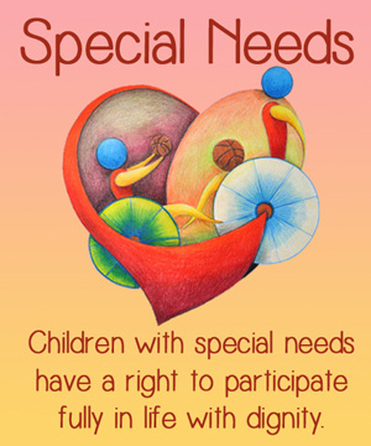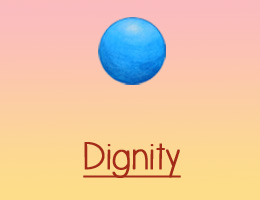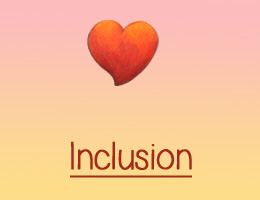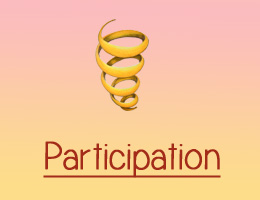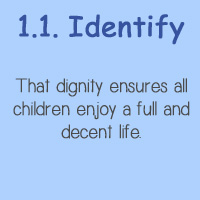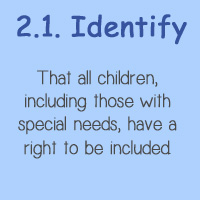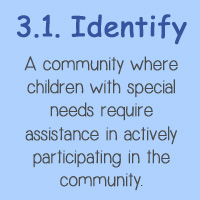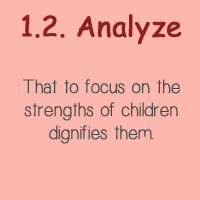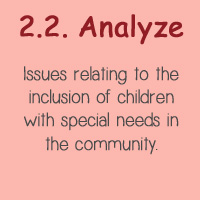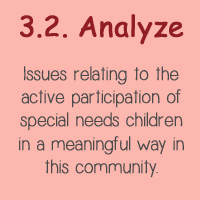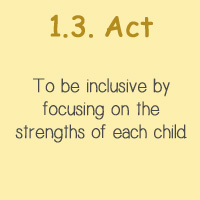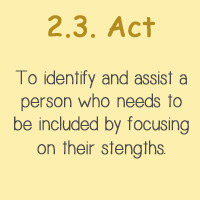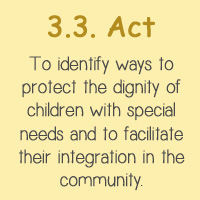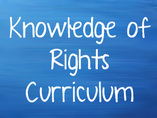Dignity Inclusion Self-Reliance Tolerance
Special Needs Sub-Unit Focus
There are an estimated 150 million children with disabilities in the world. More than 80% of them live in developing countries with little or no access to services, such as education.
(Committee on the Rights of the Child, General Comment #9. 2006)
(Committee on the Rights of the Child, General Comment #9. 2006)
Convention Article that Relate to this Right
Article 23
1. States Parties recognize that a mentally or physically disabled child should enjoy a full and decent life, in conditions which ensure dignity, promote self-reliance and facilitate the child's active participation in the community.
2. States Parties recognize the right of the disabled child to special care and shall encourage and ensure the extension, subject to available resources, to the eligible child and those responsible for his or her care, of assistance for which application is made and which is appropriate to the child's condition and to the circumstances of the parents or others caring for the child.
3. Recognizing the special needs of a disabled child, assistance extended in accordance with paragraph 2 of the present article shall be provided free of charge, whenever possible, taking into account the financial resources of the parents or others caring for the child, and shall be designed to ensure that the disabled child has effective access to and receives education, training, health care services, rehabilitation services, preparation for employment and recreation opportunities in a manner conducive to the child's achieving the fullest possible social integration and individual development, including his or her cultural and spiritual development
4. States Parties shall promote, in the spirit of international cooperation, the exchange of appropriate information in the field of preventive health care and of medical, psychological and functional treatment of disabled children, including dissemination of and access to information concerning methods of rehabilitation, education and vocational services, with the aim of enabling States Parties to improve their capabilities and skills and to widen their experience in these areas. In this regard, particular account shall be taken of the needs of developing countries.
1. States Parties recognize that a mentally or physically disabled child should enjoy a full and decent life, in conditions which ensure dignity, promote self-reliance and facilitate the child's active participation in the community.
2. States Parties recognize the right of the disabled child to special care and shall encourage and ensure the extension, subject to available resources, to the eligible child and those responsible for his or her care, of assistance for which application is made and which is appropriate to the child's condition and to the circumstances of the parents or others caring for the child.
3. Recognizing the special needs of a disabled child, assistance extended in accordance with paragraph 2 of the present article shall be provided free of charge, whenever possible, taking into account the financial resources of the parents or others caring for the child, and shall be designed to ensure that the disabled child has effective access to and receives education, training, health care services, rehabilitation services, preparation for employment and recreation opportunities in a manner conducive to the child's achieving the fullest possible social integration and individual development, including his or her cultural and spiritual development
4. States Parties shall promote, in the spirit of international cooperation, the exchange of appropriate information in the field of preventive health care and of medical, psychological and functional treatment of disabled children, including dissemination of and access to information concerning methods of rehabilitation, education and vocational services, with the aim of enabling States Parties to improve their capabilities and skills and to widen their experience in these areas. In this regard, particular account shall be taken of the needs of developing countries.
Unit Resources and References
- American Academy of Child & Adolescent Psychiatry - Facts for Families: Services in School for Children with Special Needs.
- Human Rights Center - Action and Advocacy on the Rights of Persons with Disabilities.
- Human Rights Education Association - Human rights of persons with disabilities.
- UNICEF - Innocenti Research Centre: Promoting the Rights of Children with Disabilities.
- UNICEF - Discussion Paper: Using the human rights framework to promote the rights of children with disabilities.
- United Nations Enable - Human Rights and Persons with Disabilities.
- United Nations Convention on the Rights of Persons with Disabilities - Preamble: Recognizing that children with disabilities should have full enjoyment of all human rights and fundamental freedoms on an equal basis with other children, and recalling obligations to that end undertaken by States Parties to the Convention on the Rights of the Child.

